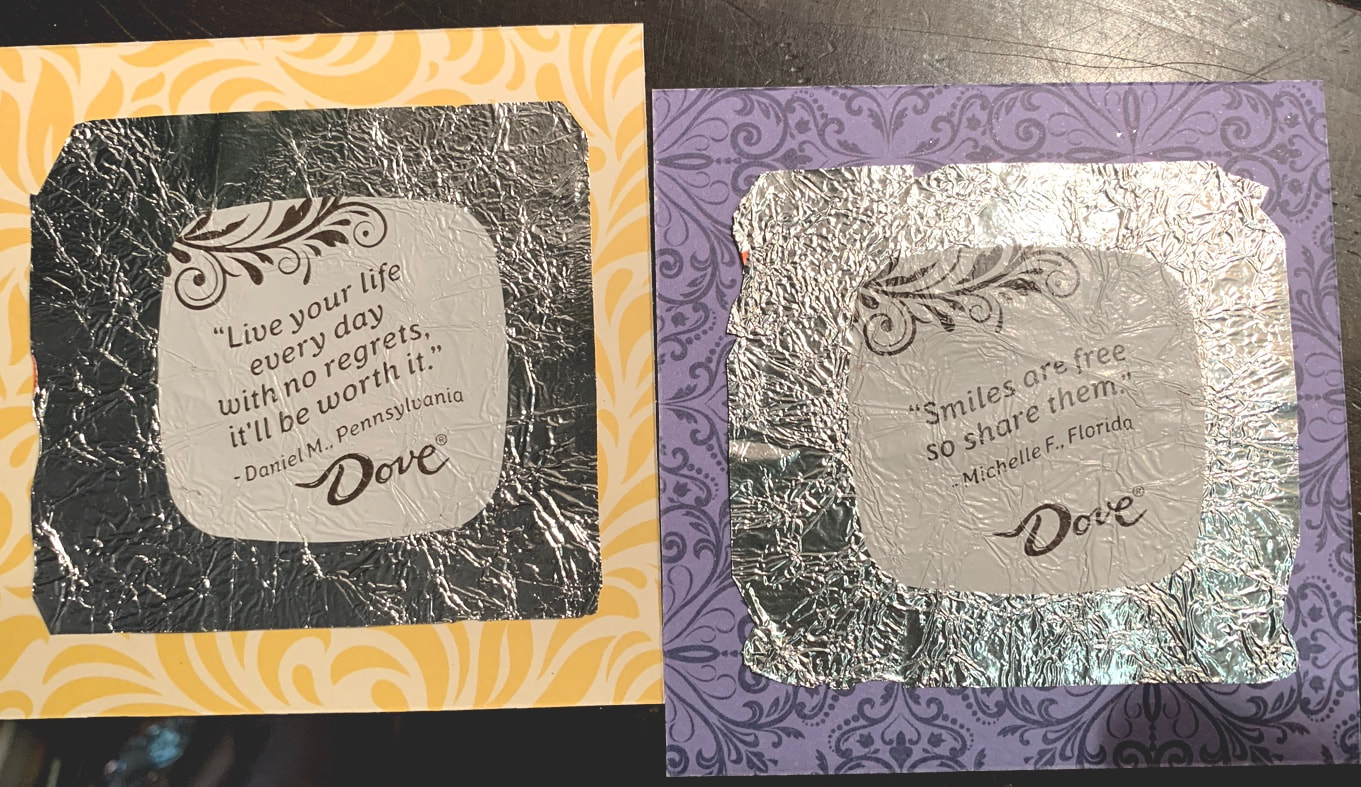With Grace, God “kisses the past into forgetfulness.”
Charles Dickens described the parable of the Prodigal as “the greatest short story ever written.” But instead of reading Luke’s account, I want to share my excerpts from Philip Yancey’s book What’s So Amazing About Grace? Yancey tells a story of a young teenage girl from rural Michigan. Her parents are Uber religious, and very conservative. Their way of life clashes with her wild spirit. They argue constantly, always trying to change her to fit their ideals. One night, the girl decides she’s had enough. She executes a plan that she has played out hundreds of times in her head. She runs away. Her second night in Detroit she meets a guy in a fancy car. He tells her how cool she looks, sets her up in a hotel and cares to her needs. He teaches her how to make money just being herself. She learns men will pay extra for someone like her. For a while she feels important and empowered. But time changes her. The streets make her tough, and hard around the edges. When signs of her addiction begin to show, she is no longer valued the same way. The guy in the fancy car leaves her where he found her. She scrapes up whatever she can for a room, a meal or just a quick fix. But it’s never enough. In her time of need the world abandons her like it has with so many others. Then one night as she’s crouched over a metal grate trying to stay warm, she thinks of her dog asleep in her parent’s house. She begins to sob, longing for home. The next morning, she leaves a message on her parents answering machine, “Mom. Dad. I’m catching a bus up your way. It gets in at midnight tomorrow. If you’re there, great. If not, I’ll understand.” That journey home took longer than she anticipated. But when she saw the sign that read, “Travers City – 15 miles” her stomach began to twist. Looking at the nicotine stains on her dirty fingers her plan didn’t seem so good anymore. What if her parents were on vacation and never got the message? What if they moved on, or worst, what if they had written her off as dead? And if they did show up, would they even recognize her? The bus pulled into the station. She wanted to stay on the bus, but she had nowhere else to go. She was broke and broken. So, she shuffled her way inside, blinded by the bright overhead lights. It took a moment for her to focus on all the people in funny hats jumping and waving and blowing noise makers. It was her brother, sisters, cousins, aunts and uncles and her parents. A big sign behind them read welcome home! From out of the crowd her father ran to greet her with the biggest hug. She stuttered to say something, anything. But her father quickly said, “Hush child, we have no time for that. You’ll be late for your party. A banquet is waiting for you at home.” Even though I edited this story down quite a bit, it still chokes me up. Because like the prodigal in Jesus’ parable, this young child was not able to express her apology that she’d rehearsed on that the long journey home. Why? Because the love of the father wouldn’t have it. She was back in his arms and that was all that mattered.
If you’ve ever wanted to know what God looks like, there is no better picture than the one Jesus gives us. Yet his parables aren’t about how we see God. Instead they are about how God sees us.
Gushing with pity and unrestrained tenderness, the father’s embrace of his son symbolizes God’s steadfast love for you and me. Once in God’s arms there is no casting up of sins, no shame or guilt – all is forgotten. God “kisses the past into forgetfulness.” This is what makes God’s grace so scandalous to the world. No one deserves it, or earns it, or buys it. It’s given to us through Jesus Christ, so that anyone who follow him will find their way back to the open doors and the welcoming arms of God’s love and care. Yancey writes, “Jesus is pretty clear that there is nothing that can disqualify us from God’s love. There is nothing we can do to make God love us more. There’s nothing we can do to make God love us less.” Let that sink in for a moment. Grace does not depend on what we do for God but on what God willingly does for us. God is willing to become vulnerable on so many levels, just to retrieve, recover, and return us to our rightful place in the family. And when we come home God rejoices! No matter how badly we’ve mess up. Lent is a time for self-reflection; to search your heart and find who you really are – God’s beloved child. As you fast from the things that cause you to run away from God’s love, don’t forget to feast – to rejoice and to celebrate – because God loves you no matter what. God is calling you home. As we move towards the cross and Easter celebration, let us not lose sight of the fact that we belong to God’s family…called to follow Jesus… to the cross, through the resurrection, and into the arms of God. By seeing and doing what Jesus does with God’s grace, we learn the way back to God and can teach others to do the same. That is our mission as a church and as a people. In closing I’d like to leave you with these words from Henri Nouwen who wrote this about the parable, “God rejoices. Not because the problems of the world have been solved, not because all human pain and suffering have come to an end, nor because thousands of people have been converted. No, God rejoices because one of his children that was lost has been found.” As the manifestation of God’s perfect love, Jesus lived out God’s heart perfectly – taking the brokenness in the world and blessing it. How might we do the same? Jesus comes to us and loves us where we are, just so we can return to where we first came, and where we always belong. At home with the one who loves us, no matter what. It might sound like a cliché but …Grace is amazing. Work Cited Lockyer, Herbert. All The Parables of the Bible. Zondervan: 1963, pp. 281-89. Yancey, Philip. What’s So Amazing About Grace? Zondervan: 1997, pp. 45-53.
0 Comments
Richard Rohr writes, “...the only path toward our larger and True Self, where we don’t need to prove ourselves to God anymore; where we know, as Thomas Merton (1915–1968) put it, it’s all “mercy within mercy within mercy.” It’s not what we do for God; it’s what God has done for us. We switch from trying to love God to just letting God love us. And it’s at that point we fall in love with God. Up to now, we haven’t really loved God; we’ve largely been afraid of God. Finally, perfect love casts out all fear. As John says, “In love there can be no fear. Fear is driven out by perfect love. To fear is to still expect punishment. Anyone who is still afraid is still imperfect in the ways of love” (see 1 John 4:18).
A friend of mine makes a cake for her neighbor. It’s the neighbor’s birthday. And the cake is going to be a surprise. In a text message my friend sent me a picture of the cake being mixed. My reply to her was this, “Kindness is always best served as a surprise.”
The same is true about God’s grace. It is a welcomed surprise, because it’s truly unexpected. We don’t see it coming because we don’t earn it. We don’t buy it. We can’t control it. And more often than not we don’t deserve it. It’s a gift to anyone who wants it. Surprise! In his book What’s So Amazing About Grace, Philip Yancey argues, “There is nothing we can do to make God love us more. There’s nothing we can do to make God love us less.” Surprised? Relieved? Overcome with joy and peace and goodwill? A so we make cakes for our neighbors, we buy a coffee or groceries for a stranger, we let someone have a parking space or cut in line, we show kindness as a surprise...not to score points but to share with others the grace-filled love that God surprised us with first.
I love to garden. I love digging in the soil, planting stuff, and snipping and pruning as I attend to the plant’s wellbeing. It’s relaxing – my time to be with God. But I also love to reap the fruit of my labor. Especially my avocados. So it’s easy for to sympathize with the landowner in this parable. The guy wants a fig, but the tree is barren. This is interesting to me because our neighborhood is littered with fig trees. People often cut them down because they can’t eat all the of fruit that one tree can produce with little or no attention. For a fig tree to be fruitless it has to work pretty hard to be something other than what it was created to be. It seems clear to me that God is the landowner in this parable, frustrated because this creation isn’t doing what it was created to do...to bear fruit! I understand why God would want to just get rid of it. Back here where our orange tree is… we used to have a Japanese Maple. It was a pretty tree that had lovely red leaves. But it barely produced any shade, and it didn’t do much but take up valuable space. So we got rid of it. We chopped it down. And now in it’s place is a truly life-giving tree. God is a God of life, and God expects nothing less from us than for us to bear the fruit of life in abundance. God is the landowner, and each one of us is a tree. And the onus is on us to either produce fruit or risk being composted. To borrow a question often asked by Barbara Walters, “If you were a tree, what would you be?” A giant redwood? A stately elm? My mom would probably be a Christmas tree. And Kathleen would most likely would be the avocado tree in our front yard. I’d be a blood orange tree...it’s a uncommon take on a classic fruit. It’s full of vitamins and flavor. It’s blood red pulp is both tangy and sweet. Plus the tree stay green year round, it doesn’t go bald like I have. And when it blooms the sweetness of the blossom is intoxicating. I think that sums me up, sweet and intoxicating. For my birthday this year, my awesome son gave me a blood orange tree which I planted outside our kitchen door. It’s already starting to grow new shoots and leaves. I’m excited to see how it will bear good fruit in the coming seasons. But what good would this gift be if it didn’t produce any fruit? How would I react if all the time and energy I spent to make this young tree thrive, amounted to nothing? Would it be my fault or is it the tree’s fault for it’s fruitfulness? This is God’s dilemma. God wants us to be who we were meant to be, the loving caring children of the living God. But when we turn away from God’ will to do our own thing, what good are we to God or to each other? We might say that the moral of this parable is that with Jesus, God gives us a second chance. But that’s not completely accurate. Yes, the gardener intervenes on behalf of the tree. But the deal the includes a dire prospect: if the tree does not flourish in a year, then yes, grind it up, roots and all.
This parable is not just about Jesus’ loving care for us. It is also a sharp reminder of the seriousness and finality of God’s judgment. There’s no time to waste. Spring is but one season of life. Prepare now and you’ll be ready for the harvest. This text forces us to live within that tension between God’s judgment and God’s grace. For the same God that waits one more year will one day judge us all the same. Of course the one who balances this tension for us is the one who is willing and determined to tend to our fruitlessness. Jesus’ mission is to save the tree, us. If we truly desire to follow him, then it must be our mission as well. Together with Christ, we share in the nurturing and care of others, especially the ones kicked to the curb or abandoned by the world. For when we see and do what Jesus does, then we learn and teach the will of God for others to bear good fruit. And what is that fruit exactly? St. Paul tells us it’s, love, joy, peace, patience, kindness, generosity, faithfulness, gentleness and self-control. Are these the things growing in you? I want to leave you with one last thought. As I was taking in the spring beauty budding all around me, a little busy bee caught my attention. I watched as it hopped around the orange blossoms with speed and accuracy. I thought to myself, “This is Jesus” blessing my bloom so that I might reach my potential. But then I noticed this bee was not alone. There were many others buzzing about. We are called to join Jesus in the garden of life to germinate the word and will of God so that everyone has a chance to propagate the good fruit of life. By this we are judged, and the world is saved from itself. Repent, return to God and flourish. Spring is but one season in the year. There is still a lot of work to do. So let us put on our gardening gloves and pick up our shovels and get to work. Let us be the busy, buzzy bees that we are called to be. Nearly three years ago we set out to build a church, not with walls but with people. A church whose vision is to love God, love others and serve both. I don’t know where we are in that journey, but I know how far we’ve come. The trees in our yard are blossoming like mad, and soon fruit will begin to weigh down the branches. But my only goal for this church, and for all her people, has been to make sure when the landowner comes looking for fruit, he will be pleased with what he finds. Go now and be busy buzzy bees for the Kingdom of God so we all might flourish and truly live. Amen. Works Cited Bartlett, David L, Barbara Brown Taylor. ed. Feasting on the Word: Year C, Vol. 2. Louisville: Westminster John Knox Press, 2009. Barreto, Eric D. Living By The Word, Christian Century Magazine. March 24, 2019. In my ally bible reading app The Bible In A Year by Nicky Gumble, I am in the last book, Revalation. An often misunderstood book. It begins with seven oracles to the seven churches. Two of which are blessings, not curses. That’s a good sign.
Anyway, in the devotional part of the app, his wife Pipa wrote this. ‘To the church in Ephesus... in Smyrna... in Pergamum’ I wonder what Jesus would say about our church. Maybe all the things we think we do rather well, he wouldn’t be impressed with. He would probably be pleased with the small acts of faith that we don’t particularly notice.” Her works make me think about the little things we do in life to help the people around us. Even the smallest acts of kindness are seen by Jesus as well as revered and rewarded. Blessings come both big and small. They come from God to you. And from you back to God. The circle of kindness is never broken, never ending.
Today is St. Patrick’s Day. And in our house that means only one thing: corn beef, and cabbage. Ok two things corn beef and cabbage and homemade Irish soda bread. Fine. Three things corn beef and cabbage, soda bread and maybe a wee dram of Jameson’s for the soul. This is how we celebrate my wife’s Irish roots. But here’s the funny thing about St. Patrick: He was Scottish. At a young age he was kidnapped and taken to the Emerald Isle. It was there he met the native people who would eventually help him escape his captors. Safely home, Patrick longed for the day he could return to those people and bring the gospel of Jesus Christ with him. His work would award him with sainthood in the church. While his life was shrouded in myths and legends, Patrick’s story isn’t so much about chasing out snakes as it is about love. The kind of love that would make Patrick risk everything he had for the people he cared deeply for. So, he went back. This mission would be a great challenge. First getting there was dangerous and not very accessible. He would need to catch a ride on a boat going to a place that was visited less by merchants and more with the pirates and runaways. He was also a fugitive; if his old captures found him again there’s no telling what they’d do to punish him. And of course there was also the problem of language. The Hibernian people had not been conquered or influenced by outsiders and so their language was oral and not written out. One of the greatest gifts Patrick gave to these people was the creation of a special alphabet; translating their sounds into words. After years of this tenuous work, Patrick was finally able to share the Good News with them in Gaelic...which is still spoken to this day. As he was learning their language, Patrick taught them the gospel in a different way – by living in community with the people, working closely with them, building trust by becoming one of them. The only word he had to speak was: Love. Well actually, two words: God’s love. Patrick understood what God’s love meant to him and he would risk everything he had to share it. His story speaks to the heart of another great saint, John the Evangelist, a.k.a. the one whom Jesus loved. In the 3 chapter of his first letter, John wrote this to the Christian churches. READ: 1 John 3:16-24 John’s gospel is Jesus’ gospel. The good news of God’s love. As John reminds us, it’s one thing to love someone, but it’s another thing to love as confidently as Jesus did; laying down his life for us. Such confidence and love go hand in hand. If you know God’s love for you, then you can love God and love one others. Better yet, you can live confidently before God and before your fellow human beings; without fear of failure or worrying about what others might think or do. God’s love is bold with us. Which leads me to ask, “Is our love the same towards God? Do we boldly love others?” As Jesus, John and Patrick all illustrated, love is more than a feeling. It’s an action. John writes: “This is how we know what love is: Jesus Christ laid down his life for us. And we ought to lay down our lives for one another.” How do we do this? Are we to take a bullet for someone? I don’t think it has to be that complicated or dangerous. In fact, John said “If anyone sees a brother or sister in need, have pity and help them.” Love is bold, and daring, and risky. No one knows this better than Jesus. His story is nothing less than the perfection of God’s love made manifest. I’m sure Patrick could have gone back as a zealous missionary with a savior complex. He could have used shame and guilt, or beaten the fear of God into the people until they submitted to his religious beliefs. But instead he took God’s words to heart and showed the people what the gospel is all about by embracing the living Christ and being Christ among them. I know it’s important to tell people that God loves them. But words are not enough. As John put, “Don’t just talk about love; get out there and practice it.’ This is what it means to follow Jesus, to demonstrate your love in the same way that Jesus did. God calls us to act – especially towards the poor – by addressing poverty, injustice and violence that keep people from thriving in God’s Kingdom. Let’s face it, even bigots and racists have words. But their actions often lead to the very things that God abhors. Our words must build bridges not walls, embrace peace not war, offer forgiveness and hospitality, hope and care to all people, especially the least of these. God’s Love is the Gospel of Jesus. Made manifest in the Christ who would risk it all to give it to us. This is why it’s called the good news! When we see and do what Jesus did, then we too learn how to manifest God’s love and teach to others to do the same. Patrick knew that to live Christ is to live in community with others bearing God’s love as the source of healing for the community. Patrick is a perfect example for us to have during Lent – showing us how we can make Christ alive in the world. As Richard Rohr wrote, “To live out Christ in the world is not to speak about Christ...but to live in the surrender of love, the poverty of being, and the cave of the heart.” Lent is a time to search our heart deeply as we fast from the things that are keeping us from abiding in God’s commandment for us. As I discover every year, there is a very good chance you are going to fail to uphold your Lenten fast. Everyone does. But each time we stumble is our reminder to feast; not of corn beef and cabbage, but on the love of God that has been poured out for you through Jesus Christ. No one is perfect. But even in your imperfect love John reminds us that the Spirit is at work in your life. By seeing and doing what Jesus did, Patrick was able to open up his heart and showed the people what God’s love looks like. And we can do the same. My challenge to you this week is simply to go out and be the gospel, sharing the good news of Christ Jesus – always ready to show mercy, grace and love to others as God has commanded. What does God command? John boils it down to this: Accept the divine love that comes in the name of Jesus Christ and to share that love with one another. I can’t think of a better way to celebrate St. Patrick than with corn beef, cabbage, soda bread, a wee dram of Jamesons...and sharing an endless feast of God’s love with everyone in the world.
For my birthday, a dear friend gave me a bunch of little presents to open throughout the year. They are little sayings found inside Dove chocolate candy wrappers. Yes, having the chocolate would have been good too, but these little bites of wisdom are just as satisfying.
To live a Torah life is I had to study ancient Hebrew in order to study the ancient Hebrew texts. I was given 30 weeks to achieve this task. And I was 47 years old, with a home, a wife, and three young kids who were homeschooled. Needless to say, in these conditions, learning squiggly lines that are read backwards was not an easy task. Neither was learning how to put it all together to interpret it to make sense both in the historical context as well as what it might mean to us today. Lastly, just to torture myself even more I took the Psalms in its Hebrew text as my exegetical challenge. I would come to liken this to someone learning proper English by reading beat poetry or rap music. But somehow I did it. And do not know how.
Learning a a new language did help for me to understand life and mine and God’s roles in it. I would boil it all down to one word: Torah. I’m not sure I am 100 percent accurate in saying this, but I believe Torah (which includes the first five books of the Bible) is simply this: LIFE. The stories, the history, the rules and regulations are all there in order to teach us how to live life. But not just to live it as we often do today, but to live it with abundance and joy; always mindful of the presence of God is with us. Life will always be pitted with challenges to face, obstacles to overcome, and people who will push against you. It will be filled with lessons to learn and people to love. And it will present God as nothing less than love. Pure love. To live a Torah life does not mean following a set of rules to the letter of the law. It’s not a reward system anymore than it is a punishment system. It’s simply a way to live life in harmony with the Creator of all life and all the creation within it; be it people, animals, nature or mystery. God has created us and called us to be LIFE in all the billions and billions of ways it has been made manifest. Jesus is life, not just eternal life but everyday, normal life. He lived Torah, not simply by follow a path of rules and rituals, but by fully embracing every aspect of life in its most divine presence. He both discovered and taught that the mysteries of God are found in simple loaves of bread as much as it is present in the demon possessed or the suffering and dying. He did not do this to win a prize or obtain a golden ticket to some afterlife. He did it to show us that such a life as Torah offers us, is a life no only worth living but able to live and obtain. There will be challenges because everyone is on this path of discovery but a at different stages. Jesus came to save us, from ourselves where we condemn one another. and he can to show us the way back to God’s original intention for us: LIFE. TORAH. LIFE ABUNDANTLY. Jewish theologian Abraham Heachel taught that “to live a Torah life is to experience eternity within time.” Jesus said, “The Kingdom of God has come.” Living Torah, as Jesus did, is not temporal but eternal. And it begins today. We must live life in mindfulness and in harmony with one another and with the entirty of all creation from which we have been made one through a divine and loving Creator whose life and mysteries are in us and all around us. Life. Torah. Today. Tomorrow. Eternally ours to embrace and be one everyday. the ego is crafty. |
| Years ago, my wife Kathleen stared in a commercial for a burger chain called Jack in the Box. Each commercial always featured the character Jack – a normal guy that just so happens to have a giant ping-pong ball for a head. The guy who created this character also wrote, directed and did the voice of Jack in every commercial. Rumor had it he would have played Jack, but his ego was too big to fit into the costume. Ergo the ego. |
For example a person with a strong ego could be someone who has “a healthy and strong sense of self that allows him or her to instantly access an inner truth in any given situation.” These are often traits of business leaders and mavericks. Yet a person with a strong ego could also be someone who is “narrow-minded, arrogantly self-centered, and unable or unwilling to be humbled. He or she always has to be right. And any contradictory perspective is always wrong.” The traits of someone who goes into politics.
| As you begin your self-exploration in Lent, there’s a good chance your ego will be put to the test. You will either emerge with a stronger sense of our self, or you will throw your hat in the ring of people running for president in 2020. On the first week of Lent, we always read one of the three gospel stories of Jesus being tempted in the wilderness – each on the heels of Jesus’ baptism. Today our message comes from Luke 4:1-13. READ ENTIRE PASSAGE HERE | The devil said to him, “If you are the Son of God, command this stone to become a loaf of bread.” Jesus answered him, “It is written, ‘One does not live by bread alone.’” |
Isn’t the Holy Spirit supposed to protect us from stuff like this and not lead us into it? And why is God in cahoots with the devil anyway, aren’t they mortal enemies? More importantly, exactly who or what is the devil?
If we believe God created all thing and declared them good, does that include the Devil? If so, does that mean there’s a flaw in God’s design? Or is the flaw in us? See how the questions just keep coming? Ergo the ego…we always need to know the answer to God’s mysteries.
As you can imagine, there’s a lot of theories about the devil, but none that have convinced me it’s some guy in a red suit holding a pitchfork. After years of thinking about all this…I too have developed my own theory (and that's all it is my egotistical theory).
I believe this thing we also call the devil, or the tempter is nothing more than our ego.
God gives us our conscious self to help us survive, and to flourish, and evolve in this wilderness we call life. It’s a good thing, until it’s not. Our egos can push us to create wonderful ideas, amazing music and beautiful art that inspires others to do the same. But it can also push us to hurt someone who disagrees with us, or cause us to blame others when life doesn’t go our way.
Take Adam and Eve for example. God gave them a conscious and commands them to use it to multiply and create. When they are caught disobeying God’s command to not eat from this one particular tree, Adam immediately blamed Eve. And Eve quickly blamed who? The serpent or the devil. Having something to blame is easier than bearing our own wrong-doing. Ergo the ego.
So, for sake of argument, let’s take Luke’s story and replace the word devil with the word ego, and you’ll see how we all fall short of God’s glory. All of us…but one…Jesus.
Luke writes, “Full of the Holy Spirit Jesus was led by the same Spirit to be tempted for 40 days by the “Ego.” Without the ability to shift blame on something else, neither the devil or the Holy Spirit can be blamed for leading us into temptation.
The way I see it is that God’s Spirit guides Jesus to a place where he confronts his humanness in order to find and embrace his Divine nature. This tells me that God guides us also to places to discover who we are and what we are called to do. But it’s up to each one of us to either to shift our self towards God’s will, or go into politics.
While Jesus is out there what does he do? He begins to fast – a Jewish ritual of “self denial” that prepare one’s self to stand before God in repentance and atonement. I don’t know if Jesus needed to do either of these things, but in this sacred action we learn how to humbly set aside our needs, putting God’s will above our own.
But the ego is crafty. It knows when we are our most vulnerable and hungry. It tempts Jesus to “command these stones to become bread.” The ego desires to be in control and to command others to do what we want? Quoting from Deuteronomy Jesus reminds us that it takes more than food to really live. It takes faith in God’s word.
Tapping into our human desire for power, the “Ego” tempts Jesus again by telling him, “The whole world will be yours if only you bow down and worship me.” But Jesus knows better. He knows God’s word is true, and all the power in this little planet doesn’t come close to the glory God has in store for us.
Jesus had the power to turn stones into bread. He had to power to command the people flocking to him, to bow down and worship him. But he doesn’t act on his power. Instead Jesus lives in God’s word, and reminds the “Ego” that all glory and all power is God’s.
Our ego was given to help us create and flourish in God’s love for us. But eventually we all have to make the choice: You can follow your ego’s love of self, or follow the way of Jesus, the perfect manifestation of God’s divine love given to you. To follow Jesus means to always cling to God’s Word and be mindful of what God is saying because the “Ego” will tempt our faith, and even use God’s own words to do so.
In its final attempt, the “Ego” meets Jesus at the top of the Temple, and said, “If you really believe you’re the Son of God, then jump. And if God’s word is true then angels will intervene and you won’t so much as stub your toe.” With great faith, Jesus fires back, “It is also written, ‘Do not dare tempt the Lord your God.’”
Jesus knows the power he possesses. He knows what he can do as a human. But he also understands the power of God’s word and how much more he can do by humbly giving his whole self, including his ego, to God. Ergo our ego too.
This is important, because the game is not over. Luke ends the passage with a cryptic message. “The Ego left Jesus until an opportune time.” In other words, your ego is always with you, lying in wait for another opportunity to win you over.
Therefore it’s not enough to simply fast during Lent. We need to be constantly grounded in God’s Word daily, and be mindful always of what God is calling us to do. This was the way of Jesus, who overcame the temptation of his human self. And found his Divine truth. By seeing and doing what Jesus does we too can learn how to do God’s will and teach others to truly flourish in God’s glory.
In John’s gospel Jesus said, “I am the way.” I don’t think he meant it as an arrogantly self-centered egotistical statement. Instead I believe Jesus is drawing us into his inner being, his true self. He is inviting us to practice his way, the way that humbly leads us to a true relationship with God.
The way of Jesus is self-denying your hunger and desire for power and control, it puts God and other’s first, and love at the beginning of every encounter you have. By following the way of Jesus, is to live faithfully in God’s words where you find your way through the challenges we all face in the wilderness of life. By being grounded in him, the living Word of God, we are able to overcome the temptations that wait to trap us.
Whether you are an advertising executive, a business maverick, a student or the president of a large country, Jesus is the way of life where the Word of God speaks louder than the egotistical voice inside each one of our heads.
Ergo the ego is always where it was created and meant to be…in God’s divine self.
Work Cited.
Mamas, Michael. Ego. Is Bigger Better? https://www.entrepreneur.com/article/281170 Sept. 19, 2016. (accessed: March 7, 2019)
| In Psalm 136, the author of this beautiful song of praise writes, "O give thanks to the God of heaven, for his steadfast love endures forever." Receiving love is a great reason to give thanks. Giving love is a great way to receive thanks. In Eugene Peterson's The Message bible, the scholar chose to rewrite this phrase a little differently. His interpretation of this classic song of praise says, "Thank God! He deserves your thanks. His love never quits." Even when we quit God...God never quits! In nearly every interpretation of this wonderful song of praise, this idea of God and God's love is constant. And in all versions, the idea that "God's steadfast love endures forever" is repeated twenty-six times! There are twenty-six letters in our alphabet. A simple reminder that in every word we utter, we ought to be giving God thanks and praise! Through us, God's love endures and never quits. |
Ian Macdonald
An ex-copywriter turned punk rock pastor and peacemaker who dedicates his life to making the world a better place for all humanity.
"that they all might be one" ~John 17:21
~ St. Thomas Aquinas (1225–1274)
Archives
June 2024
May 2024
April 2024
March 2024
February 2024
January 2024
December 2023
November 2023
October 2023
September 2023
August 2023
July 2023
June 2023
May 2023
April 2023
March 2023
February 2023
January 2023
December 2022
November 2022
October 2022
September 2022
August 2022
July 2022
June 2022
May 2022
April 2022
March 2022
February 2022
January 2022
December 2021
November 2021
October 2021
September 2021
August 2021
July 2021
June 2021
May 2021
April 2021
March 2021
February 2021
January 2021
December 2020
November 2020
October 2020
September 2020
August 2020
July 2020
June 2020
May 2020
April 2020
March 2020
February 2020
January 2020
December 2019
November 2019
October 2019
September 2019
August 2019
July 2019
June 2019
May 2019
April 2019
March 2019
February 2019
January 2019
December 2018
November 2018
October 2018
September 2018
August 2018
July 2018
June 2018
May 2018
April 2018
March 2018
February 2018
January 2018
December 2017
November 2017
October 2017
September 2017
August 2017
July 2017
June 2017
May 2017
April 2017
March 2017
February 2017
January 2017
December 2016
November 2016
October 2016
September 2016
August 2016
July 2016
June 2016
May 2016
April 2016
March 2016
February 2016
January 2016
December 2015
November 2015
October 2015
September 2015
August 2015
July 2015
June 2015
May 2015
April 2015
March 2015
February 2015
January 2015
December 2014
November 2014
October 2014
September 2014
August 2014
July 2014
March 2014
February 2014
December 2013
November 2013
September 2013
August 2013
June 2013
May 2013
April 2013
March 2013
February 2013
January 2013
December 2012
October 2012
September 2012
July 2012
June 2012
May 2012
April 2012
March 2012
February 2012
January 2012
December 2011
October 2011
September 2011
July 2011
June 2011
February 2011
December 2010
September 2010
August 2010
July 2010








